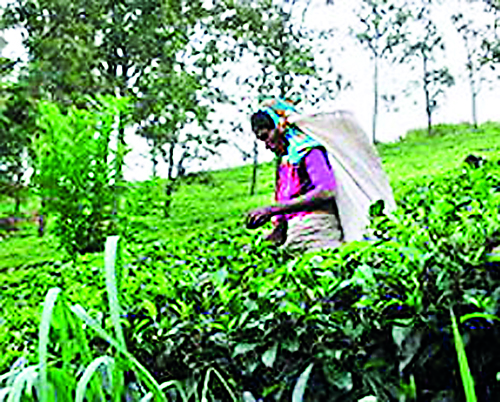Industry imperiled, planters disillusioned
Not too long ago, planting was considered a very attractive profession in which the cream of the land used to fight tooth and nail to find employment in. Work was tough and naturally conditions much more primitive than what we find today.
Violence on estates continues to creep on us with more vigour. Today it is becoming so common. After the untimely and unfortunate demise of Nihal Perera, former Secretary, Ceylon Planters’ Society and the Superintendent of Noori Estate, the Ceylon Planters’ Society, took up this incident with the Secretary Defense. Instructions were given to the higher authorities of the police to take adequate precautionary measures to avert acts of harassments and violence to which very often the planting executives are exposed to. Regrettably, no meaningful action had been taken by the police to resolve this situation prior to the incident.
The Assistant Superintendent of Mocha Estate has been assaulted by the workers in the presence of the police and later he was admitted to Nawalapititya Base Hospital for treatment. When the Assistant Superintendent had lodged a complaint with the police, they had not taken any measures to address the issue; instead they were dilly- dallying due to the pressure exerted by a leading Cabinet Minister who is also a trade union boss. There was a similar incident which went unreported at Temple Stowe Estate.
If the workers had any grievances, they should have taken it up with the management and dealt with it in a reasonable manner without resorting to any kind of unlawful practices. Politicians and trade unionists must understand that the Superintendent or an Assistant Superintendent is a paid servant and his obligation is to follow the instructions given by his employer and cannot be held responsible because he is not the direct employer of the employees and they are only looking after the state owned lands given on lease to the Regional Plantation Companies. If as custodians of such state assets the planters are being attacked and abused, how could we expect them to perform their duties?
However, workers who were involved in the said incident at Mocha Estate were rounded up and produced before the Magistrate; they had been released on bail due to the weak report that had been submitted by the Police and if the Police had not requested for bail, the Magistrate would not have granted bail. It clearly shows the political pressure exerted on the Police.
The Ceylon Planters’ Society has already requested President Mahinda Rajapaksa to conduct a thorough investigation into this matter and the Society is hoping to get an appointment with him to bring all these issues to his notice. We must bring to his notice that the planters carried out their duties in an exemplary manner in maintaining discipline and good governance on the estates managing and safeguarding government property without being a burden to the law enforcement authorities.
The ball is in the Government court. What seems to be more important is the better enforcement of law and order and the fullest co-operation and the support from the law enforcement authorities to the planting executives to perform their duties efficiently and diligently because we are proud of our industry and we need to ensure that no irreparable damage is done to this vital economy of our country.
The planter has had its share of remorse and tragedy, the most noteworthy being the merciless assassination of some planting executives through terrorist activity during the dark days of the 1989/1990 insurrection. The tragedies which have affected the planting community in the past are still fresh in our minds and need no elaboration. We hope it will never have to be faced again.
It is sad to state that we hear more negative and critical nature of opinions raised from various quarters at large engaged in the tea industry, particularly highlighting productivity, cost of production, replanting, infilling and mechanization, and inadequacy of labour forces etc, etc.
While more controversial issues keep accelerating no proper remedial measures appears to be implemented to address the situation.
From an unbiased perspective, in my opinion the ground reality is the acute absence of more essential discipline, peaceful and conducive atmosphere in the estate sector for the planters to perform a more vibrant duty.
I believe, it is time that the Ceylon Planters Society and the Planters Association come together to eliminate and eradicate this acute problem from the entire plantation sector and to make our industry a viable venture.
(The writer is a former Editor, Ceylon Planters Society Bulletin)


